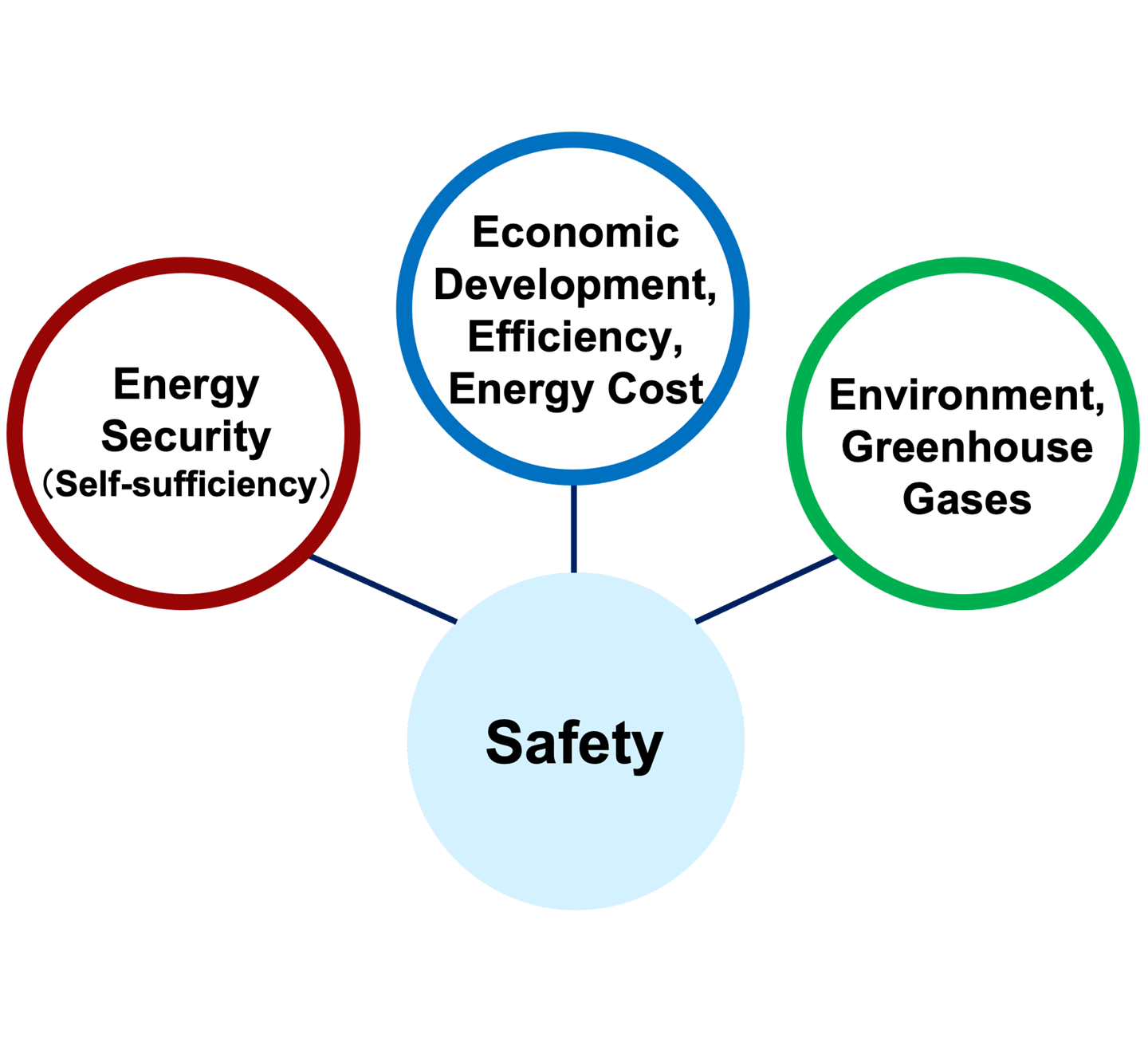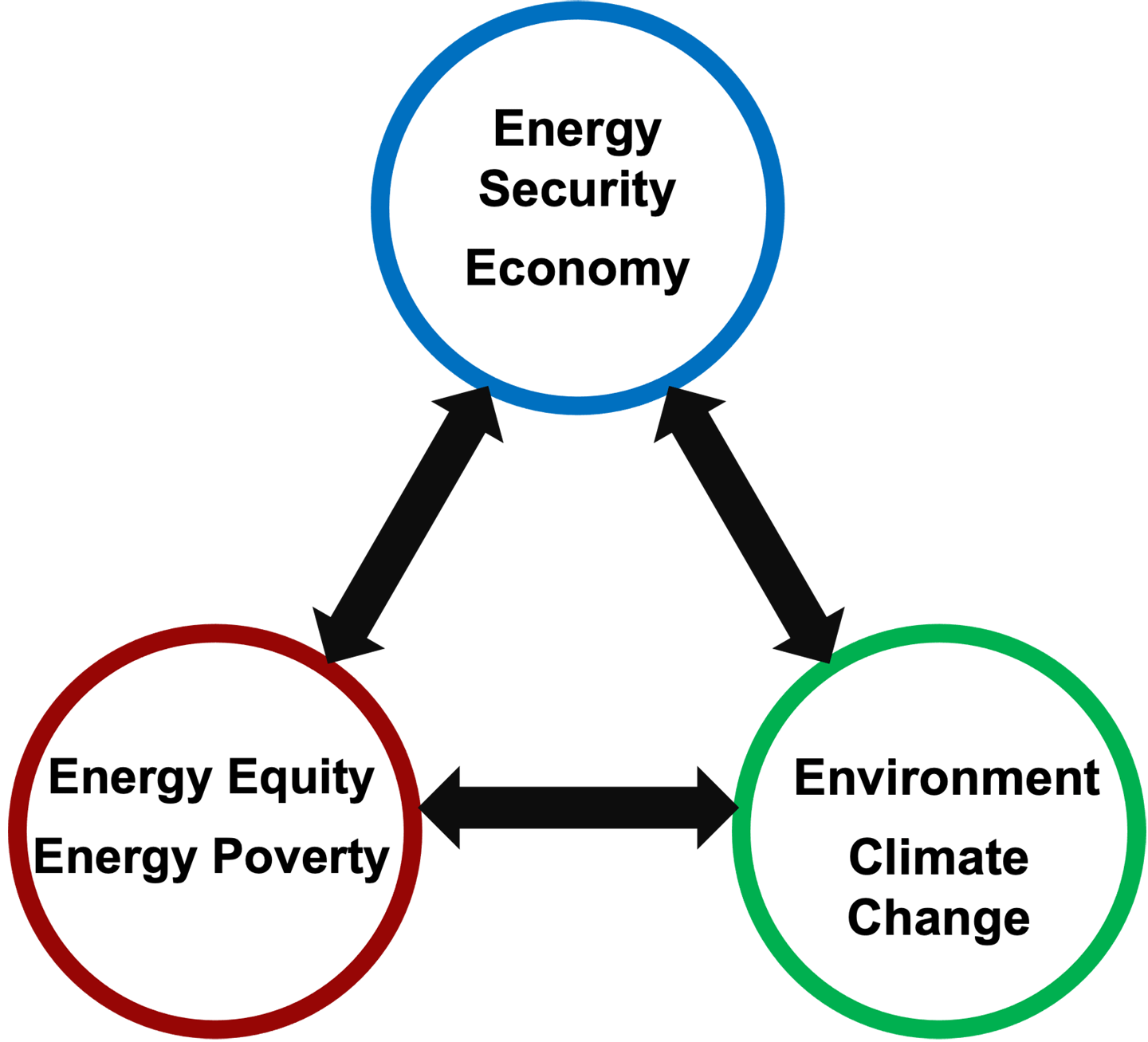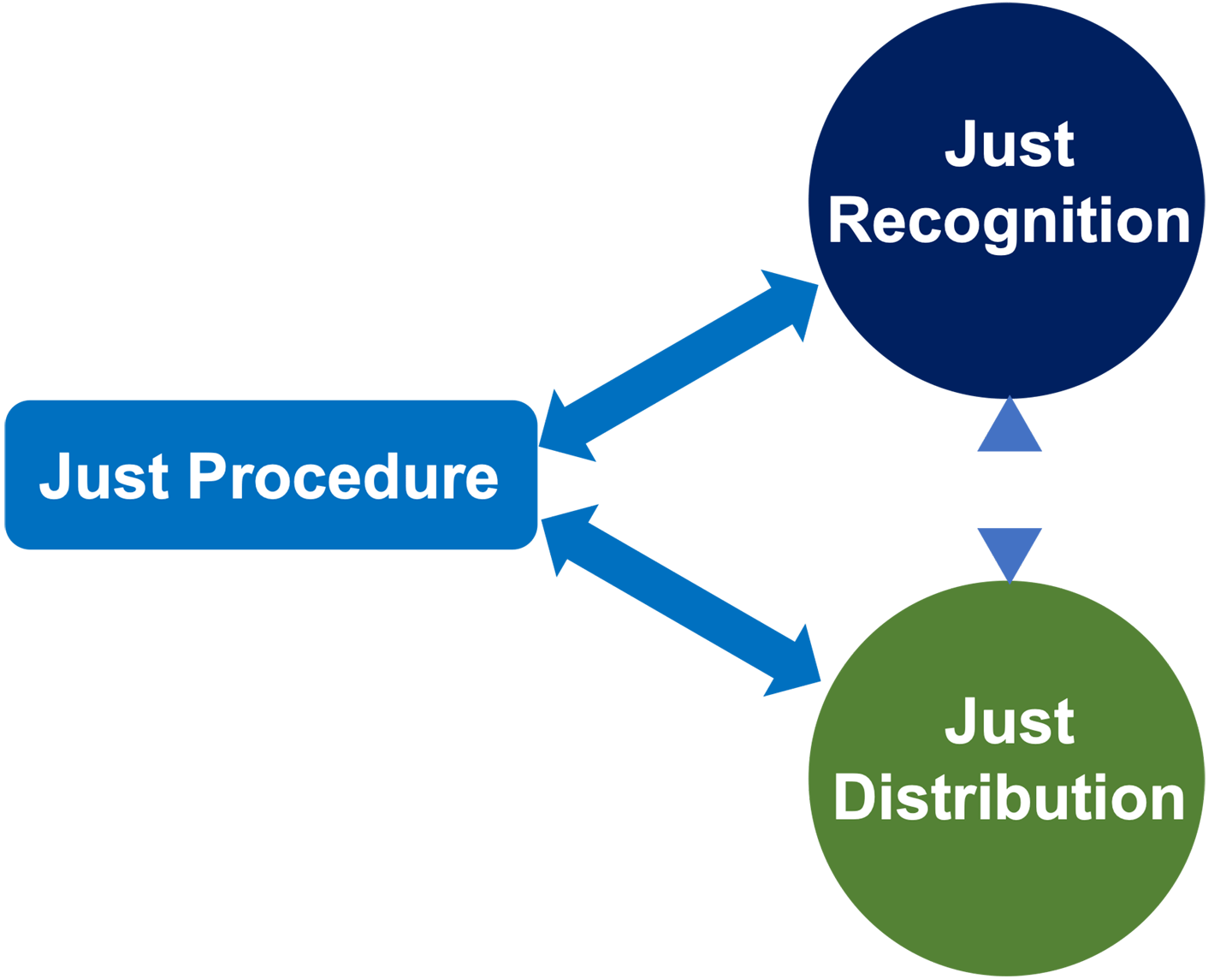Recent Research Results Adding an energy justice perspective to a critical review of Japan’s energy policy discourses reveals inherent justice failings in Japan’s 3E+S energy policy framework
Achieving a decarbonized society is an inherently social issue and poses a multitude of ethical issues. Including, but not limited to, issues of fair distribution of costs, benefits, or risks regarding energy sources and technologies, issues about rights, interests, and values of individuals and social groups, and issues of representation or access to decision-making. Most policy structures focus on techno-economic pathways including Japan. Techno-economic pathways are notorious for lacking a social and ethical evaluation about the energy technology mixes these structures favor. However, ethical perspectives in decision-making of infrastructures are indispensable for achieving a decarbonized society.
One of the problems is that policy evaluations integrating concerns of social justice and ethics are inadequate in policy decision-making on energy futures across countries that apply techno-economic models. To address this problem, the concept of Energy Justice aims to integrate evaluations of ethical issues related to energy services and infrastructures in context of energy systems’ transformation. We used this concept to analyze the state of potential justice issues in Japan’s core energy policy framework, the 3E+S (energy security, economic efficiency, environment, and safety), that is used as the guiding principles for energy pathways by the energy policy elite in Japan.
Japan’s 3E+S must not be mistaken with the internationally used 3E. Japan’s 3E+S claims to achieve its four dimensions in harmony. The 3E covers issues around energy equity and poverty, energy security and economy, and the environment, climate change and sustainability. The key difference is that the international 3E discourse includes questions of equity. Japan’s 3E+S does not. And the other key difference is that 3E+S’s harmony claim opposes the trilemma of the 3E, i.e. under the international 3E discourse, the dimensions are seen in conflict to one another and countries’ value systems and priorities determine which issue area is favored over the other. Japan’s 3E+S denies that inherent conflict. We criticize this harmony rhetoric of Japan’s overarching energy policy framework and the denial of the inherent conflict, as well as the exclusion of issues of equity and ethics, Japan’s energy policy may never overcome old paradigms and create real policy innovations.


Eventually, the 3E+S has served indirectly to solidify the institutional framework of the technocratic top-down energy elite of the post-oil shock era. The framework is continuously enforced as we can observe throughout the Basic Energy Policy Plans since 2002. In this paper, we argued that there is a normalization effect of injustices emanating from the energy governance structure in Japan affecting society at large and carried through the energy transformation. In other words, justice failings coming from the energy system and the policy structure that governs it are constantly being repeated which eventually allowed these failings to be expected and accepted. Without addressing these inherent and normalized justice failings under the 3E+S, the future decarbonized society will carry those institutionalized injustices through many generations to come.
To practically investigate the ethics of the 3E+S energy policy structure Energy Justice provides a complex framework of justice dimensions and their principles which we synthesized through the review of studies that focused on Energy Justice related issues. In more detail, the three most common justice dimensions, distribution, recognition, and procedure, and their underlying principles provide us with a new perspective on how to evaluate the 3E+S.
For ensuring energy security, improving energy self-sufficiency by reducing the dependence of a centralized energy system through decentralizing the energy market was considered a key measure. So, like in other developed countries in central Europe, it was intended to be achieved in Japan from the late 1990s. The decentralization of the energy market would also improve the distribution of costs and benefits across various shareholders and stakeholders. However, the institutional power structure of the energy elite stunted the process of decentralization locking Japan’s energy system in fossil fuel import dependency. More so, the Feed-in Tariff scheme that is the major driver of renewable energy promotion did in fact put much of the costs of developing the infrastructure for renewable energies on individuals and private households causing an unfair distribution of costs and worsening energy poverty.
Under the same policy institutional framework that enforces the 3E+S, justice failings due to the top-down technocratic processes of nuclear power plant siting are being repeated with solar and wind turbine power plants. That is, siting processes neither recognized the voices of individuals or social groups nor provided access or appropriate representation in decision-making procedures. To be more precise, sites located close to residential areas were selected that have little or no local activism to avoid potential opposition by residents, or communities that have more financial and political capital have more opportunity to influence the decision-making processes than communities who do not causing an unjust system of misrepresentation and disregard, financial share, or the exposure to risks.
Most of the Japan related energy justice studies focus on distributional aspects and economy. Because decision-making procedures affect the distribution of risks, costs and benefits, as well as the degree of recognizing local needs, interests, and values, emphasizing procedural justice may motivate the yet lacking ethical turn in Japan’s energy policy discourse. Therefore, we argued that centering a framework around procedural justice principles to inform decision-making on energy related issues is expected to affect other unjust areas positively.

Despite the increasing understanding of injustice that are important for ethical evaluations, ethical issues are usually not part of the governmental rhetoric. Not discussing them, however, leaves the ideology underneath policy programs unchecked and allows inherent social injustices unaddressed. In other words, we become accustomed to inherent injustices and do not question elite decisions accepting them as common practice. Therefore, we continue this research by investigating how to better integrate the ethical and social perspective into policy decision-making procedures through an ethically and socially informed technology assessment framework of decarbonized energy technologies as a tool for energy policy decision-making.

